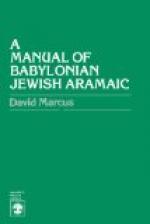* * * * *
FISH OMELET.
Shred finely any cold fish, season it, and mix with beaten eggs; make it into a paste, fry in thin cakes like pancakes, and serve hot on a napkin; there should be plenty of boiling butter in the pan, as they should be moist and rich; there should be more eggs in the preparation for omelets than for fritters.
* * * * *
SCALLOPED FISH.
Take any dressed fish, break it in small pieces, put it into tin scallops, with a few crumbs of bread, a good piece of butter, a little cream if approved, white pepper, salt, and nutmeg; bake in an oven for ten minutes, or brown before the fire; two or three mushrooms mixed, or an anchovy will be found an improvement.
* * * * *
ANOTHER WAY.
Break the fish into pieces, pour over the beaten yolk of an egg, sprinkle with pepper and salt, strew with bread crumbs, chopped parsley, and grated lemon peel, and squeeze in the juice of lemon, drop over a little warmed butter, and brown before the fire.
CHAPTER IV.
Directions for Various Ways of Dressing Meat and Poultry.
INTRODUCTORY REMARKS.
Boiling is the most simple manner of cooking, the great art in this process is to boil the article sufficiently, without its being overdone, the necessity of slow boiling cannot be too strongly impressed upon the cook, as the contrary, renders it hard and of a bad color; the average time of boiling for fresh meat is half an hour to every pound, salt meat requires half as long again, and smoked meat still longer; the lid of the saucepan should only be removed for skimming, which is an essential process.
Roasting chiefly depends on the skilful management of the fire, it is considered that a joint of eight pounds requires two hours roasting; when first put down it should be basted with fresh dripping, and afterwards with its own dripping, it should be sprinkled with salt, and repeatedly dredged with flour, which browns and makes it look rich and frothy.
Broiling requires a steady clear fire, free from flame and smoke, the gridiron should be quite hot before the article is placed on it, and the bars should be rubbed with fat, or if the article is thin-skinned and delicate, with chalk; the gridiron should be held aslant to prevent the fat dripping into the fire; the bars of a gridiron should be close and fine. Frying is easier than broiling, the fat, oil or butter in which the article is fried must be boiling, but have ceased to bubble before it is put in the pan, or it will be greasy and black: there is now a new description of fryingpan, called a saute pan, and which will be found extremely convenient for frying small cutlets or collops.
Stewing is a more elaborate mode of boiling; a gentle heat with frequent skimmings, are the points to be observed.




